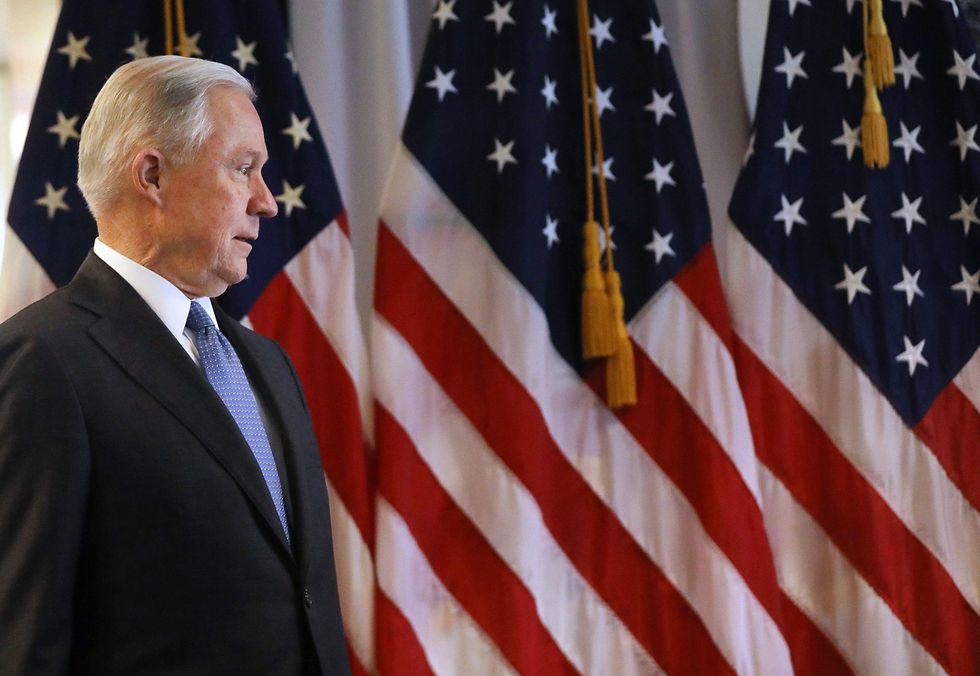
U.S. Attorney General Jeff Sessions will receive no funding in his efforts to prevent states from passing marijuana legalization laws. (Getty Images)

U.S. Attorney General Jeff Sessions will not receive any funding for his war against state marijuana laws from Congress in the new $1 trillion spending bill. In fact, the new spending bill effectively prevents the Justice Department from taking action against states that have legalized medicinal or recreational marijuana use.
Sessions has made it adamantly clear that he is against the legalization of marijuana in any form, calling the drug "only slightly less awful" than heroin. The attorney general was looking forward to pursuing drug cases more vigorously, with increased mandatory minimum sentencing. It's an approach that was popular during the '80s and '90s and that resulted in skyrocketing incarceration rates.
Sessions said at a Justice Department press briefing in February that states can "pass the laws they choose," but that "it does remain a violation of federal law to distribute marijuana throughout any place in the United States, whether a state legalizes it or not.”
However, the new spending bill will effectively prevent Sessions from enforcing federal marijuana laws where states have legalized it.
From the text of the The Consolidated Appropriations Act of 2017:
None of the funds made available in this Act to the Department of Justice may be used, with respect to any of the States of Alabama, Alaska, Arkansas, Arizona, California, Colorado, Connecticut, Delaware, Florida, Georgia, Hawaii, Illinois, Iowa, Kentucky, Louisiana, Maine, Maryland, Massachusetts, Michigan, Minnesota, Mississippi, Missouri, Montana, Nevada, New Hampshire, New Jersey, New Mexico, New York, North Carolina, Ohio, Oklahoma, Oregon, Pennsylvania, Rhode Island, South Carolina, Tennessee, Texas, Utah, Vermont, Virginia, Washington, West Virginia, Wisconsin, and Wyoming, or with respect to the District of Columbia, Guam, or Puerto Rico, to prevent any of them from implementing their own laws that authorize the use, distribution, possession, or cultivation of medical marijuana.
According to an April CBS Poll, a majority of voters on both sides of the aisle believe that marijuana legalization should be an issue left up to the states. This coincides with a rising sentiment among Americans, who increasingly believe marijuana should be available for recreational use.
Marijuana is still technically illegal at the federal level, however the Obama administration declared that it would not pursue federal cases. This policy came about as a result of a directive from former President Barack Obama who believed it was too difficult to "enforce a patchwork of laws" where marijuana would be legal in one state, and result in heavy prison sentences in another.